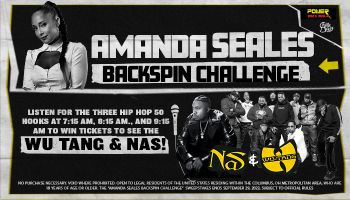The Supreme Court on Monday upheld the police practice of taking DNA samples from people who have been arrested but not convicted of a crime, ruling that it amounts to the 21st century version of fingerprinting.
The ruling was 5-4. Justice Antonin Scalia, a conservative, joined three of the court’s more liberal members — Justices Ruth Bader Ginsburg, Sonia Sotomayor and Elena Kagan — in dissenting.
The five justices in the majority ruled that DNA sampling, after an arrest “for a serious offense” and when officers “bring the suspect to the station to be detained in custody,” does not violate the Fourth Amendment’s prohibition of unreasonable searches.
Scalia’s siding with the liberals reflects his growing concern over the past five years about privacy, said Tom Goldstein, the publisher of SCOTUSblog, who teaches at Harvard Law School and is a Supreme Court analyst for NBC News.
“We’ve seen several decisions where he has joined more liberal justices to find greater privacy rights,” he said in an interview. “It’s not a big surprise in recent years, but it is a surprise in the sense of his general conservatism.”
While a cheek swab does constitute a search under the law, the court noted that it requires “but a light touch” and no surgical intrusion — a critical point, the court said, in determining whether it was reasonable.
At an oral argument in February, Justice Samuel Alito called the question perhaps the most important criminal procedure case the court had taken up in decades. Twenty-eight states and the federal government take DNA swabs from people under arrest before they can be tried.
The case arose from the arrest of a 26-year-old Maryland man, Alonzo King, in 2009 on a charge of second-degree assault. The police took a swab of DNA from his cheek, ran it through a database and matched it to an unsolved rape from six years earlier.
King was convicted of rape and sentenced to life in prison. He pleaded guilty to a misdemeanor for the 2009 assault. The Maryland Court of Appeals later reversed the rape conviction on the grounds that the DNA sample was an unreasonable search.
“Today’s judgment will, to be sure, have the beneficial effect of solving more crimes,” Scalia wrote in his dissent. “Then again, so would the taking of DNA samples from anyone who flies on an airplane.”
In an allusion to the technique of taking a swab from the cheek, Scalia wrote: “I doubt that the proud men who wrote the charter of our liberties would have been so eager to open their mouths for royal inspection.”
The Maryland law restricts DNA swabbing to people arrested for certain violent crimes, but justices, including Chief Justice John Roberts, worried during the oral argument that other laws might not be so restrictive. Roberts wondered why they couldn’t be applied to simple traffic stops.
Roberts voted with the majority Monday, as did Alito, who tipped his hand at the oral argument by saying that DNA sampling “involves a very minimal intrusion on personal privacy.”
Justice Anthony Kennedy, considered the court’s swing vote, delivered the opinion of the court. Justices Clarence Thomas, who usually votes with the court’s conservatives, and Stephen Breyer, who generally votes with the liberals, also voted with the majority.
The court’s majority ruling also said that the government has an interesting in identifying a person under arrest so that a judge can make an informed decision about granting bail. Today, it takes as long as two and a half weeks for DNA tests to come back, but lawyers noted before the court that instant DNA testing is not far off.
Like Power 107.5 on Facebook to stay updated with the latest breaking, entertainment news and original interviews!
RECENT UPDATES
- Miguel DEFIED ORDER Singer Was Told Not to Jump at Billboard Awards
- ARE THERE REALLY GOING TO BE KANYE AND KIM WEDDING BELLS?
- Buckeye Valley Teacher Plead Guilty To Engaging In Sexual Relationships With Two Students
- Taco Bell Might Be Changin The Waffle Game
- Ohio State President E. Gordon Gee To Retire
If You Are Arrested For A Felony The Police Now Can Take Your DNA to Compare to Open Cases was originally published on zhiphopcleveland.com















